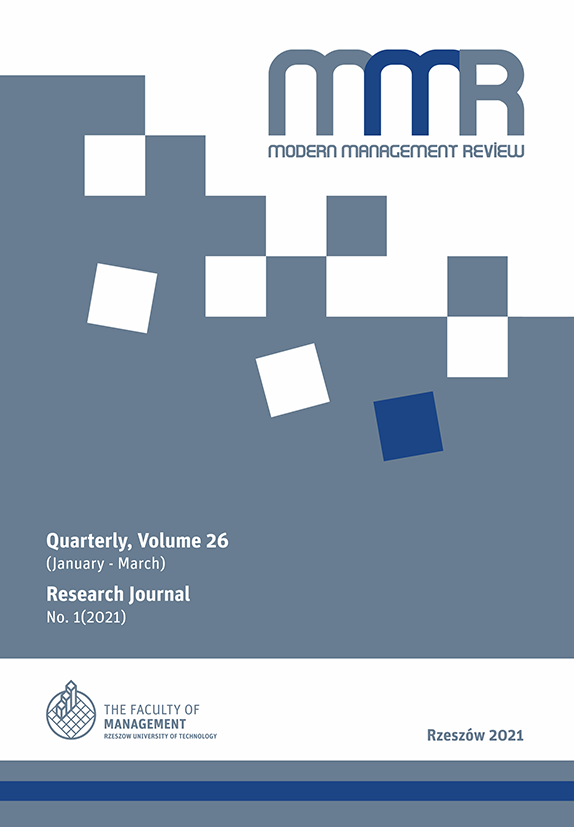Abstract
The purpose of this study is to determine whether there is an effect of motivation and work
discipline on employee performance based on the leadership of the employees of PDAM Tita
Pakuan Bogor City. The data collection technique used interviews and questionnaires, while
the sampling technique used non-probability sampling with a sample size of 85 people. The
results showed that motivation and work discipline had a positive and significant effect on
employee performance through leadership. This can be seen from the results of simple linear
regression analysis, multiple linear regression, t test, coefficient of determination test, single
test and path analysis. Leadership as an intervening variable mediates between motivation on
employee work performance which is partially mediated and leadership as an intervening
variable that mediates between motivations on employee work performance, both of which
are full mediation.
References
Hasibuan, P. S. M. (2015). Manajemen Sumber Daya Manusia. PT. Bumi Aksara.
Hengky, S. H. (2013). Fundamentals of Human Resource Management. „Journal of Human Resources Management and Labor Studies”. DOI: 0470169680.
Kardoyo K., Muhammad F., Farliana, N., Nurkhin, A. (2020). Influence of the Green Leadership Toward Environmental Policies Support. „Journal of Asian Finance, Economics and Business”, 7(11), 459–467.
Kartono, K. (2016). Pemimpin dan Kepemimpinan, Apakah Kepemimpinan Abnormal Itu? Rajawali Pers.
Maartje Paais, J. R. P. (2020). Effect of Motivation, Leadership, and Organizational Culture on Satisfaction and Employee Performance. „Journal of Asian Finance, Economics and Business”, 7(8), 577–588.
Mangkunegara, A. P. (2015). Company Resource Management (PT Teens Rosdakarya (ed.)).
Nawawi. (2013). Budaya Organisasi Kepemimpinan dan Kinerja. Nawawi (2013:244) Yang Berjudul Budaya Organisasi Kepemimpinan Dan Kinerja.
Daft, R. L. (2010). Era baru manajemen [in:] Era baru manajemen.
Rivai, V., Bachtiar, Amar, B. R. (2013). Pemimpin Dan Kepemimpinan Dalam Organisasi. Raja Grafindo Persada.
Safuan, I. (2019). Manajemen Sumber Daya Manusia. Penerbit Alfabeta.
Sastrohadiwiryo, S. (2012). Manajemen Tenaga Kerja Indonesia, Pendekatan Administratif dan Operasional. Penerbit Bumi Aksara.
Sondang, P. S. (2009). Organisasi, kepemimpinan dan Perilaku administrasi. Jakarta: Gunung Agung.
Van Hoang, C., Nguyen, N. H., Nguyen, L. Q. T., Tran, M. D. (2020). Determinants of middle managers’ leadership in the Vietnamese economic-defense enterprises. „Journal of Asian Finance, Economics and Business” No. 8.543, Vol. 7. DOI: 10.13106/JAFEB.2020.
Wen, T. B., Theresa, C. F. H., Kelana, B. W. Y., Othman, R., & Syed, O. R. (2019). Leadership Styles in Influencing Employees’ Job Performances. International Journal of Academic Research in Business and Social Sciences”, 9(9). DOI: 10.6007/IJARBSS/v9-i9/6269
Winardi. (2000). Kepemimpinan dalam manajemen. Rineka Cipta.
Yuni Siswanti, M. M. (2020). Empowering Leadership and Individual Creativity: The Mediation Role of Psychological Empowerment in Facing Covid-19 Pandemic. „Journal of Asian Finance, Economics and Business”, 7(11), 809–816.
All texts published in the Journal "Modern Management Review" are available in the full version on the website of MMR. Digital IDs have also been entered from number 19 (3/2012) (DOI: 10.7862/rz.2018.mmr.1)
Open Access – CC BY 4.0
This is an open access journal which means that all content is freely available without charge to the user or his/her institution. The articles are published under the terms of the Creative Commons licence (CC-BY 4.0), including the following fields of exploitation comprising:
1) the right to publish the Work in print in book and digital form and to distribute it in book and digital form, including by displaying, playing, broadcasting, making it publicly available by the Publisher and third parties,
2) the right to record and reproduce all or part of the Work on paper and in the form of a digital record and in any other possible way by the Publisher,
3) the right to enter the Work into computer memory and save the Work in the IT systems of the Publisher and other entities distributing digital content,
4) the right to archive the Work and make copies of the Work on electronic media by the Publisher, without quantitative restrictions,
5) the right to digitise the Work and to perform conversions/transformations of the Work in electronic form into other digital formats by the Publisher and third parties,
6) the right to distribute the Work, including via the Internet or other ICT networks by the Publisher and other third parties, in a way that allows viewing, reading, copying the content of the Work in electronic form, i.e. all elements belonging to it, whereby copying shall be understood as the saving of the Work made available to an interested person on a medium of their choice,
7) the right to store the Work in the database of the Publisher and other entities distributing the Work in any form, as well as its processing in the database of the Publisher and third parties,
8) right to translate and publish the Work in one of the modern languages in any form by the Publisher and third parties.


